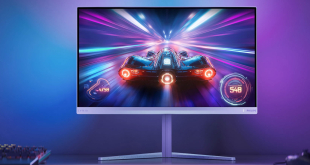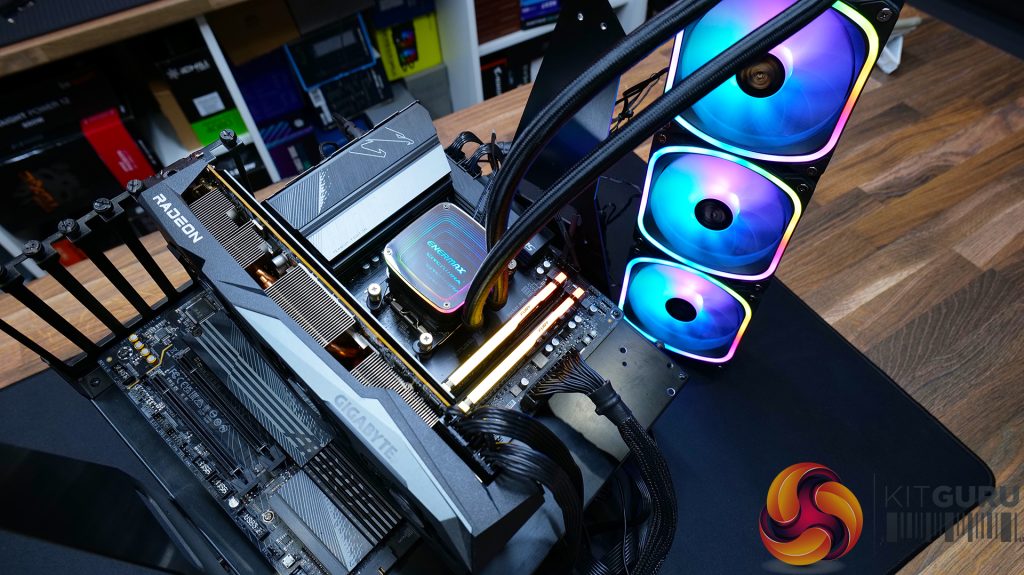
Test System Specifications:
- CPU: AMD Ryzen 9 7950X
- Motherboard: Gigabyte X670 Aorus Elite AX
- Memory: 32GB Kingston Fury FK560C36BBEAK2-32 DDR5-6000
- Graphics card: Gigabyte RX 6700 XT Gaming OC
- Storage: 500GB Corsair MP600 PCIe Gen4 NVME M.2 SSD
- Power Supply: Seasonic Prime TX-1000
- Chassis: Open Test Bench
- Thermal Compound: Arctic MX-6
- O/S: Windows 11 Version 22H2
Testing Methodology:
We are primarily focussing on the performance of each cooler at 100% fan speed and also when locked to 40dBA noise output. We will focus on cooling performance using a manual overclock with all-core frequency and VCORE locked to 5.2GHz/1.3v and Precision Boost Overdrive performance.
- The test data is logged using HWINFO and the final 10 minutes of the data is calculated to find the average CPU temperature and CPU clock multiplier (PBO Test) and then plotted in the charts.
- For testing, we use a 30-minute looped run of Cinebench R23 and record the steady-state CPU temperature at the end of the test. This ensures that the CPU has had ample time to warm up and reach a steady state under all of the coolers.
- The ambient is maintained at 19-21 degrees Celsius. Where there is variation beyond this temperature range, we add extra repeated tests to ensure consistency. However, this is well controlled now with A/C.
- We also test each cooler with at least two fresh installs (typically three) to mitigate the likelihood of poor mounting spoiling results.
- Ambient temperature and humidity are controlled via a mini split air conditioning system inside the test room. Ambient temperature is maintained between 19-21C, Temperature delta figures are shown in the charts (ambient temperature is deducted from the measured component temperature).
Test Results:
Acoustics
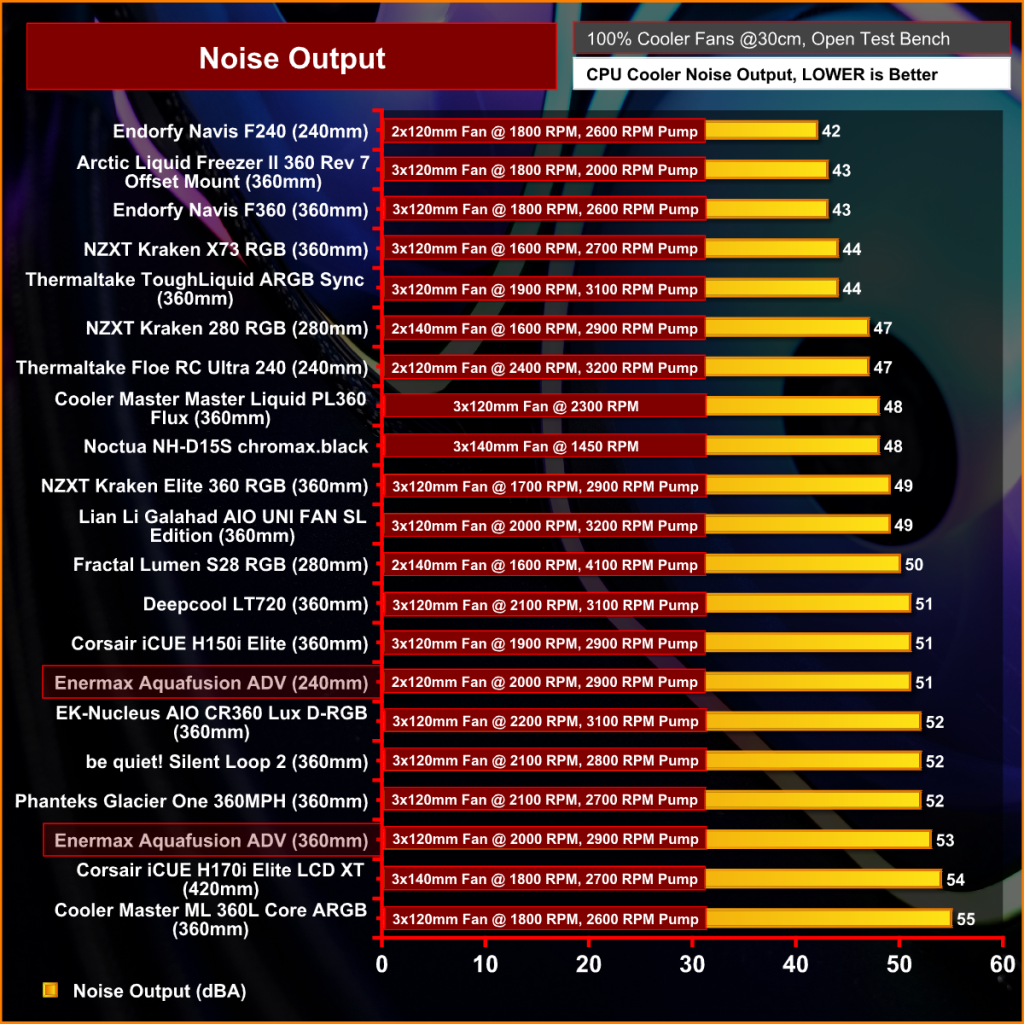
Let's start by looking at noise output as this will provide a good indication of performance based on noise.
With fans running maximum RPM the Aquafusion ADV coolers are loud. At 100% duty cycle the Gigabyte BIOS reported a maximum fan speed of 2000RPM. At 53dBA the 360mm Aquafusion ADV is producing noise output that is very distracting. With one less fan, the 240mm has a marginally lower noise output but at 51dBA it is still very loud for a 240mm unit.
Thermal Performance

With the fans operating at maximum RPM the 360mm Aquafusion ADV produces mid-range performance. Other coolers in a similar price range such as the DeepCool LT720 and Endorfy Navis F360 and the Arctic Liquid Freezer 2 all outperform the Aquafusion, but it still performs on par with some other more expensive 360mm AIOs.
At max fan speed, the 240mm Aquafusion is towards the bottom end of the chart which is to be expected on this high-performance CPU and it seems to be performing on par with other 240mm coolers.
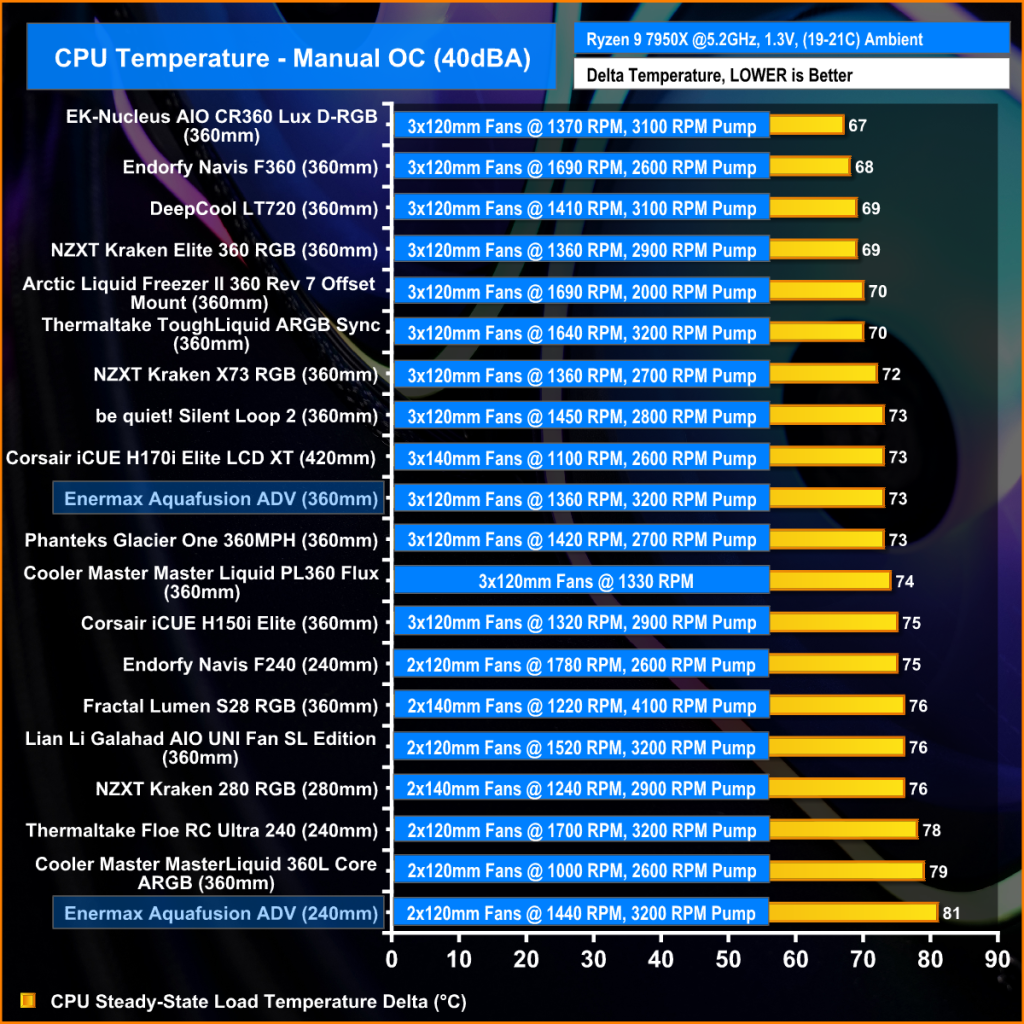
Tuning fan speed down to 40dBA noise output reduces the thermal performance of the 360mm Aquafusion only slightly, so it retains its middle-of-the-road performance but the 240mm unit is affected significantly by the reduction in fan RPM and thermal performance on the 7950X drops off the cliff with an average delta of 81°C means the actual CPU temperature hit upwards of 105°C which is at the point where the system would shut down to prevent damage to the CPU.
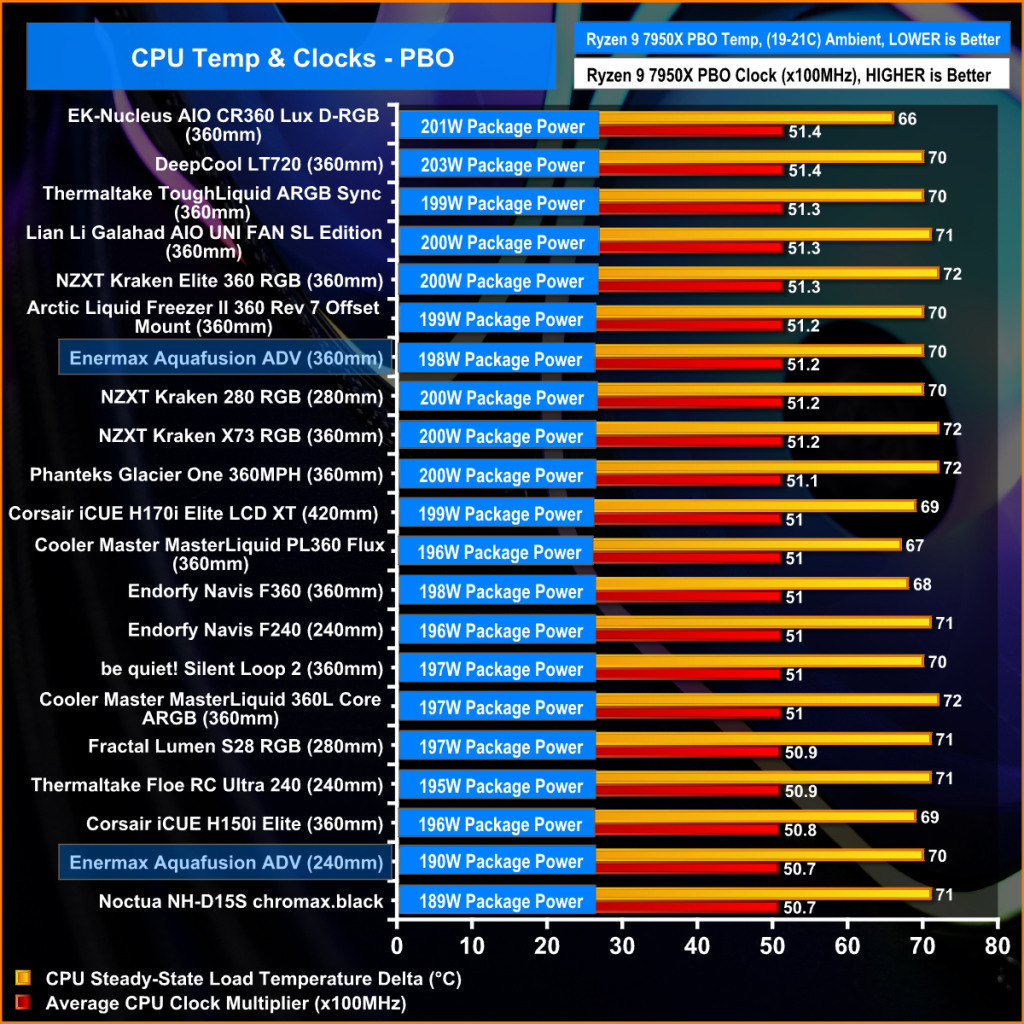
CPU temperature isn’t the main point of interest in the PBO test as the delta will be within a few degrees between all coolers.
The important metric is the CPU clock multiplier. The Aquafusion 360 holds on to a 51.2x average clock multiplier while cooling just under 200W of package power which is solid performance. With fans at maximum RPM in the PBO test the Aquafusion 240 performance is again trading blows with other coolers with an average clock multiplier of 50.7x, however some similar-priced coolers are still outperforming the Aquafusion 240 by a few hundred MHz clock speed which means CPU performance is lost.
 KitGuru KitGuru.net – Tech News | Hardware News | Hardware Reviews | IOS | Mobile | Gaming | Graphics Cards
KitGuru KitGuru.net – Tech News | Hardware News | Hardware Reviews | IOS | Mobile | Gaming | Graphics Cards


